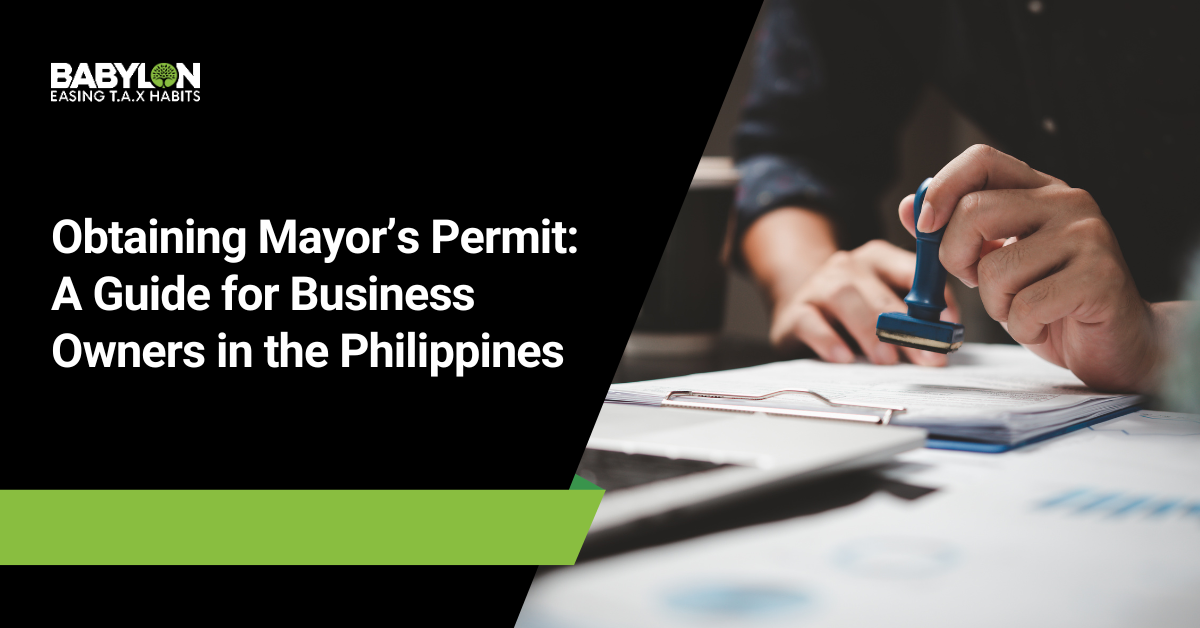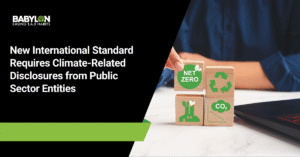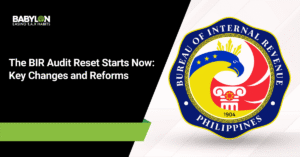Thinking of starting a business in the Philippines? If so, a Mayor’s Permit is one of the key requirements you need to secure so you can run your business.
In this guide, we’ll help you with the steps and requirements in obtaining a Mayor’s permit and other details, such as the documents needed, validity period, who needs to apply for it, fees, among others.
What is a Mayor’s Permit?
A Mayor’s Permit, also known as a Business Permit, is a legal document issued by the local government that allows you to operate your business within a specific city or municipality in the Philippines. This permit confirms that your business is in compliance with local regulations and guidelines.
Before you can start your business, securing a Mayor’s Permit is mandatory. The permit is obtained from your city or municipal City Hall through the Business Permit and Licensing Office (BPLO).
What is the purpose of a Mayor’s Permit?
Before you can legally start a business in the Philippines, you need to secure a Mayor’s Permit. This is issued by your local city or municipal government and acts as a license that allows you to operate within their jurisdiction.
Getting a Mayor’s Permit shows that your business follows local laws, including zoning rules, tax regulations, and safety or health standards. Whether you’re setting up a small shop, a corporation, a partnership, or even running a business on your own, this permit is a basic requirement and it applies to all business types.
Having a valid business permit can also add to your credibility. It gives customers and business partners the assurance that you’re operating responsibly and within the bounds of the law.
Businesses that operate without a valid permit can face penalties, added taxes, or in worse cases, closure and confiscation of assets.
How to process Mayor’s permit application
Step 1: Prepare the Initial Requirements
Before you can apply for a Mayor’s Permit, you must first gather these documents:
- Accomplished Application Form (available at the Business Permit and Licensing Office or BPLO)
- SEC / DTI / CDA Certificate of Registration
- SEC – for corporations/partnerships
- DTI – for sole proprietors
- CDA – for cooperatives
- Contract of Lease (if renting) or Transfer Certificate of Title (TCT) (if owned)
- Barangay Business Clearance
- Sketch or photo of the business location
Step 2: File Your Application at the BPLO
Once you have completed the initial requirements, proceed to your local BPLO (usually located in the City/Municipal Hall). Submit all documents along with the filled-out application form.
Step 3: Secure a Zoning/Locational Clearance
Visit the Office of the Municipal or City Planning and Development Coordinator:
- Your application and documents will be assessed.
- An inspection may be conducted to ensure compliance with zoning ordinances.
- Pay the necessary fees based on your business type and location.
- Upon approval, you will receive your Zoning Clearance.
Step 4: Secure a Building Permit and Electrical Inspection Certificate (if applicable)
If your business operates in a physical structure, you may also need:
- Building Permit
- Electrical Inspection Certificate
- Certificate of Occupancy
These can be acquired from the Engineering or Building Office of the LGU.
Step 5: Secure a Fire Safety Inspection Certificate
Visit the Bureau of Fire Protection (BFP):
- Present your paid requirements and zoning clearance.
- The BFP will inspect your premises or request photographs.
- Pay the applicable fire safety inspection fee.
- Receive your Fire Safety Inspection Certificate upon approval.
Step 6: Secure a Sanitary Permit
Head to the Sanitary/Health Office of your LGU:
- Present proof of payment and application documents.
- Undergo mandatory inspections, which may include:
- Water testing (microbiological analysis)
- Pest control (done by an accredited operator)
- Health certificates for all employees
- Upon compliance, a Temporary Sanitary Permit will be issued.
- The final Sanitary Permit may follow after complete inspection.
Step 7: Get a Community Tax Certificate (Cedula)
Visit the City Treasurer’s Office to obtain a Cedula, which is required for business registration and renewal.
Step 8: Assessment and Payment of Fees
Return to the BPLO or designated assessor:
- Your application will be assessed.
- You will receive an Official Billing Assessment for all applicable fees, such as:
- Mayor’s Permit Fee
- Sanitary Fee
- Local Fire Inspection Fee
- Business Plate Fee
- Service Fees
- Estimated Processing Fees (may vary by scope):
- Barangay-based business – ₱200
- City / Municipality-based business – ₱500
- Regional – ₱1,000
- National – ₱2,000
Pay all assessed fees at the Cashier’s Office.
Step 9: Submit All Final Requirements
Once you’ve secured all permits (Zoning, Fire Safety, Sanitary, Cedula) and paid the fees:
- Submit everything back to the BPLO.
- Your documents will undergo a final review.
Step 10: Release of Mayor’s Permit
After validation, your Mayor’s Permit will be released. Processing time may vary:
- Some LGUs offer same-day release
- Others may take 3–5 working days
Can I process the Mayor’s Permit online?
Several Metro Manila cities are upgrading their systems to make mayor’s permit renewals and business registration faster and more convenient. Quezon City’s QC E-Services platform allows businesses to process permits online or via kiosks in malls and barangays. Taguig City has integrated the DTI’s BNRS Next Gen into its Business Permit Licensing System, streamlining the process into three simple steps: file, pay, and release — available both online and in person.
Makati and Muntinlupa have also improved efficiency by minimizing documentation requirements and speeding up service delivery. Pasig and Mandaluyong operate Business One-Stop Shops (BOSS) in accessible locations like malls, although both still require employee health clearances, which can extend processing times. Pasay City has also launched the “Pasay E-Business Go Live” system, allowing business owners to apply for and renew permits online.
How many years is the validity of a Mayor’s Permit?
The Mayor’s Permit is valid for one year and must be renewed annually within January unless extended by the concerned local government. Those who will be late in renewal are subject to surcharges and penalties. For future compliance checks, make sure to keep copies of all permits and inspections on file.
Who is exempted from getting a Mayor’s Permit?
Not every individual or business is required to pay for or secure a Mayor’s Permit in the usual way. Here are two common exemptions:
- Service Contractors Working Outside Their Main Office Location
If a company provides temporary or outsourced services in areas outside the city or municipality where its head office, branch, or admin office is located, it doesn’t need to get a separate Mayor’s Permit in those other areas.
- Licensed Professionals (e.g., doctors, lawyers)
Professionals who pay their annual Professional Tax are not required to pay a business permit fee for running their private office or clinic. However, they still need to register their office or clinic with the local government and get a business permit—free of charge, as long as the local ordinance allows it.
That said, if a professional is found to be doing work that goes beyond their licensed practice, something that counts as a regular business activity, they can be required to pay local business taxes, as stated in the Local Government Code of 1991 (RA 7160).
Is a business permit the same as a Mayor’s Permit?
Yes, a Mayor’s Permit is also known as a business permit and holds the same exact process or value.
Does a small business need a business permit?
Yes, small businesses, like any other businesses, must secure a Mayor’s Permit to operate legally.
Does a small sari sari store need a business permit?
Yes, even the smallest sari-sari store is still considered a business under Philippine law, which means it usually needs a business permit to operate. Since it’s part of the local economy, it must follow rules set by the local government.
Some cities or municipalities might offer leniency or special guidelines for micro-businesses like sari-sari stores, but in most cases, getting a Mayor’s Permit is required. This helps make sure the store is operating within legal standards and community regulations.
Is a barangay permit enough?
No, it is not enough on its own to legally operate a business. It is only one part of the process.
- Barangay Permit: This is issued by the local Barangay (neighborhood or village). It certifies that your business complies with local barangay regulations, but it doesn’t grant you full legal permission to operate on a city or municipal level.
- Mayor’s Permit (or Business Permit): To fully legalize your business, you must also secure a Mayor’s Permit, which is obtained from the local city or municipal government. This permit ensures your business complies with broader city ordinances, including zoning laws, health regulations, taxes, and safety standards.
So, while a Barangay Permit is a crucial first step, a Mayor’s Permit is still necessary for legal operation. Both are typically required for most businesses in the Philippines.
In Summary
To operate a business legally in the Philippines, securing a Mayor’s Permit (or Business Permit) is a must. This permit, issued by your local government, ensures that your business follows all the necessary laws.
Make Business Registration Easier with Babylon2K
Starting a business is exciting, but the paperwork can be overwhelming. At Babylon2K, we specialize in making the process of obtaining your Mayor’s Permit quick and stress-free. Whether you’re a new business owner or just need to renew your permit, our expert team is here to guide you through every step.
DISCLAIMER:This article is developed by subject matter experts at Babylon2k. This is for general information only and does not constitute expert advice. It is based on current regulations and may not account for all related topics. Any tax or compliance guidance provided cannot be used to avoid penalties or promote specific actions. Laws and interpretations may change over time, which could affect the accuracy of this report. We are not obligated to update this advisory if new regulations arise.
Babylon2k’s B.E.T.H. can also help you when you need more information and clarification on taxes, businesses, finance, laws, and more. Learn More >
☎️ Get in Touch!
- Request a Free Consultation | Request Consult
- Message us on Viber/ Whatsapp Number @ +63-927-945-3382.
- Email us directly at [email protected]






